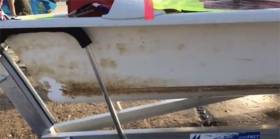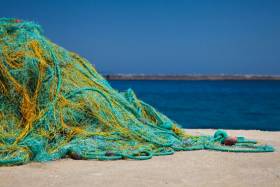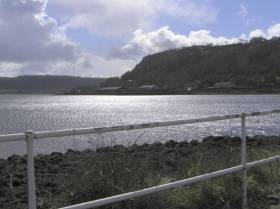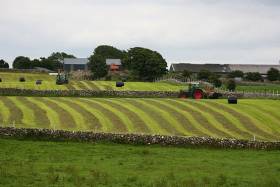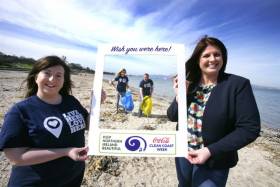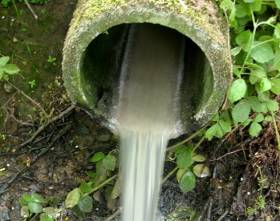Displaying items by tag: pollution
Anti-Microbe Suits No Match For Rio Pollution
#Rio2016 - Antimicrobial suits could be an answer to Rio 2016's pollution issues. But are they all they're cracked up to be?
Headlines have made much of the microbe-resistant properties of the new costumes designed for the US Olympic rowing team, as Ars Technica reports.
Comprising two layers, one to wick water from the skin and the other with an antimicrobial finish, the fabric is being talked up for its properties of protection against the water-borne pathogens in Guanabara Bay and the Rodrigo de Freitas lagoon – the latter where rowers will compete next month.
But the textile engineer behind the design says any such claims are "overblown".
Speaking to Vocativ, Mark Sunderland of Philadelphia University confirmed that the antimicrobial finish was an "afterthought" and comparable to athletic wear already on the high street.
Indeed, the primary benefit to rowers is the suit's seamless fit, covering less than half of the body – designed for comfort in high-performance conditions, not for health reasons.
Vocativ has more on the story HERE.
Slick Stains Boats In Rio Olympic Sailing Waters
#Rio2016 - Olympics organisers in Rio have a new headache alongside Zika concerns and rising crime – the city's sailing waters are turning boats brown.
After Chilean 49erFX squad Team Gumucio posted the above video to Facebook, further reports have emerged of sailors getting caught in an oil slick on Guanabara Bay.
"We've never seen anything like this. It was all over the place," Finnish sailor Camilla Cedercreutz told the Associated Press after the slick stained the white hull of her boat brown.
It appears sailors training in Rio's waters ahead of next month's Games now have to add industrial pollution to their list of issues with the Olympic aquatic venue on top of floating debris and high levels of pathogens.
#Fishing - 'Money for old rope' is the pitch for a new initiative that aims to recycle old fishing nets that often end up littering the seas, as the Irish Examiner reports.
A number of Irish companies have been invited to Norway later this year to explore the possibility of collecting abandoned fishing nets and other ocean waste for repurposing in various industries – such as using the rope fibres in reinforced concrete.
They will be led by Macroom E, a company started by Cork County Council to help small and medium businesses make the most of recycling initiatives.
Macroom E is a partner with Circular Ocean, a Europe-wide project hosting a showcase this September on its work to remove waste from the ocean – where plastic and 'ghost nets' remain a hazard to marine wildlife – and turn it into a useful, and profitable, resource.
The Irish Examiner has more on the story HERE.
Diesel Spill Threat To Wildlife In Larne Lough
#Larne - Coastal wildlife in Co Antrim is under threat after a significant diesel spill from a Caterpillar plant in Larne at the weekend, as the News Letter reports.
The plant machinery firm faces likely enforcement action after 40,000 litres of red diesel leaked into Larne Lough via a storm drain – news of which was not made public till days later, according to the Belfast Telegraph.
As the Northern Ireland Environment Agency moved to assure that the spill's impact on marine life would be minimal, conservationists remain concerned as the diesel slick was seen drifting towards The Gobbins, home to many protected seabird species.
Spot checks of affected parts of the Antrim coast have as yet found no injured birds, but Ulster Wildlife maintains that the spill "could have potentially devastating impacts on breeding birds".
The News Letter has more on the story HERE.
#Pollution - Inland Fisheries Ireland (IFI) has issued an appeal to all farmers to be vigilant when harvesting silage and spreading slurry to avoid water pollution.
Silage operations are ongoing all summer and silage effluent has the potential to cause devastating pollution in streams and rivers. Silage effluent is one of the most polluting substances to threaten the environment and can cause massive fish kills if it enters a watercourse.
Slurry spread on grassland over the summer months can also wipe out fish and invertebrate life if allowed to enter a stream. Water levels in streams and rivers are low in the summer months and have less dilution capacity, so are particularly vulnerable to pollution at this time.
“The fisheries service is appealing to all farmers and contractors to be careful that no silage effluent is allowed to run off into drains or watercourses," said Dr Greg Forde, head of operations at IFI.
"Round bales are the most environmentally friendly way to store silage. However, if a silage pit is used, it must be properly lined to prevent leakage.
“Good farmyard management will help to prevent accidental run-off and protect the local environment. Slurry spreading should only be carried out in dry weather, and not when heavy rain is forecast. It should never be spread close to a watercourse, and tanks should never be cleaned beside a stream or river.
Dr Forde addd that IFI “is grateful to the farming community for its co-operation at this busy time of year, and for its assistance in maintaining a clean and healthy environment in our lakes and rivers.”
IFI has a confidential hotline number to enable members of the general public to report incidents of water pollution, fish kills and illegal fishing or angling at 1890 34 74 24 or 1890 FISH 24.
Ireland’s Largest Coastal Clean-Up Returns This Week
#CleanCoasts - Almost 3,000 volunteers took to beaches around the country during Coca-Cola Clean Coasts Week 2015 to remove a staggering 10 tonnes of marine litter from the coastline.
With a target to remove a further 11 tonnes from beaches around the island of Ireland this year, Coca-Cola Clean Coast Week 2016 – which kicked off yesterday (Friday 6 May) and runs till next Sunday 15 May – is calling on volunteers across the island to once again get involved in the numerous coastal clean-ups and events taking place throughout the week.
Over 120 beach cleans are planned alongside more than 20 coastal celebration events across Ireland in celebration of the beautiful natural resource of the coastline and to raise awareness of the importance of keeping beaches clean from litter.
With the theme ‘Enjoy Your Beach, Enjoy Your Beach Clean’, the 2016 awareness week is run by the Environmental Education Unit of An Taisce in partnership with Coca-Cola and Keep Northern Ireland Beautiful.
The week sees range of fun and informative events with the aim of raising awareness of the importance of protecting our coastline. Coastal celebrations range from beach fitness activities that incorporate clean-ups, to a seal release in partnership with Seal Rescue Ireland at Curracloe Strand in Wexford, and talks on the role of marram grass planting in halting coastal erosion.
Other events include National #2MinuteBeachClean Day, the launch of Love Your Coast photography competition, and Beat the Microbead Day.
While all events throughout Coca-Cola Clean Coast Week 2016 are free, some are ticketed – visit www.cleancoasts.org for all the details.
Irish Water Convicted on Pollution Charges
At a sitting of Cavan District Court on 21st April 2016, Judge Denis McLaughlin convicted Irish Water in relation to a pollution incident arising from the wastewater treatment plant at Ballinagh, Co. Cavan.
Senior fisheries environmental officer Ailish Keane from Inland Fisheries Ireland (IFI) gave evidence that she had written to Irish Water on several occasions prior to the incident about failings at the treatment plant, but the company had not acted. On 20th June 2015, IFI staff noticed effluent entering the Ballinagh River and Ms Keane attended the scene and took samples. The samples showed very serious pollution of the river coming from the treatment plant, with levels of some pollutants almost 600 times higher than upstream.
In particular, the level of ammonia observed downstream was 17.9 milligrams per litre – 597 times the level of 0.03 milligrams per litre measured upstream, a level recognised as clean salmonid water. The level of suspended solids was 122 milligrams per litre, approximately 3.5 times higher than the plant’s allowed emission limit. The biological oxygen demand, a measure of bacterial growth in the water, was measured at 223.8 milligrams per litre downstream which is 45 times higher than what is expected in clean unpolluted water, and over 100 times higher than the level of two milligrams per litre observed upstream.
Judge Denis McLaughlin refused to consider a plea by defence counsel to consider a donation to charity, insisting that the delay in rectifying the issue by Irish Water, and the serious level of pollution, merited a conviction. He convicted and fined the company €2,500 in addition to costs amounting to €3,917.43.
Commenting on the case, Dr Ciaran Byrne, CEO of Inland Fisheries Ireland, said: “Protection of fish stocks and water quality is vital to maintaining an extremely valuable natural resource for the benefit of local and tourist anglers alike. Inland Fisheries Ireland is committed to protecting the most vital component of good habitat to fish – high water quality. Our staff will continue to monitor and enforce water quality legislation in order to maintain healthy fish stocks.”
Inland Fisheries Ireland (IFI) has a confidential hotline number to enable members of the general public to report incidents - 1890 34 74 24 or 1890 FISH 24. This phone line is designed to encourage the reporting of incidents of illegal fishing, water pollution and invasive species.
#Rio2016 - Rio's water 'will be ready' for sailors when the Olympic Games begin in August, according to China's Xinhua News Agency.
Speaking at an event to mark the lighting of the Olympic torch in Athens on Thursday (21 April), International Olympic Committee president (IOC) Thomas Bach told the media: "We are very confident that the competition area for the athletes will offer safe and fair conditions.
"The city, the state and the organising committee are undertaking many efforts and what we see now is that 60% of the surface is clean," he added. "Without the Games it would be zero."
However, Bach made no reference to concerns over viral contamination of the notoriously polluted Guanabara Bay, nor the risk posed to female sailors by the spread of the Zika virus.
Irish Dolphins Among Healthiest In The World
#MarineWildlife - There's some good news for marine wildlife in Clare and around the Irish coast as a recent study on the health of whales and dolphins in Europe's oceans identified Ireland's population as among the world's healthiest.
As previously reported on Afloat.ie, the paper in journal Scientific Reports identified lingering traces of now banned chemicals called PCBs that are still affecting the reproductive rates of cetaceans in European waters, particularly killer whales.
Biopsy samples of dolphins from the Shannon Estuary were included in the global study – but all indications are that the whales and dolphins that populate the sanctuary of Irish waters are among the healthiest in the region, though they still face the threat of pollutants in the Shannon Estuary, as the Clare Champion reports.
Europe's Killer Whales Threatened By Toxic Chemicals In The Ocean
#MarineWildlife - Toxic chemicals banned in Europe nearly 30 years ago are still polluting the seas off the continent.
And marine scientists fear their continued presence could spell the end for the killer whale and other species in European waters, as the Irish Examiner reports.
The warning comes from newly published research on concentrations of polychlorinated biphenyls, or PCBs, in marine wildlife – specifically orcas and other dolphins – in Irish, British and Mediterranean waters.
Co-authored by Dr Simon Berrow of GMIT and the Irish Whale and Dolphin Group, the paper in the latest issue of journal Scientific Reports claims that despite the outright ban on the use of PCBs since 1987, they persist in "dangerously high levels in European cetaceans".
High exposure to PCBs, once used in the manufacture of paints and electrical equipment, weakens the immune systems of cetaceans and has a severe effect on their breeding rates.




























